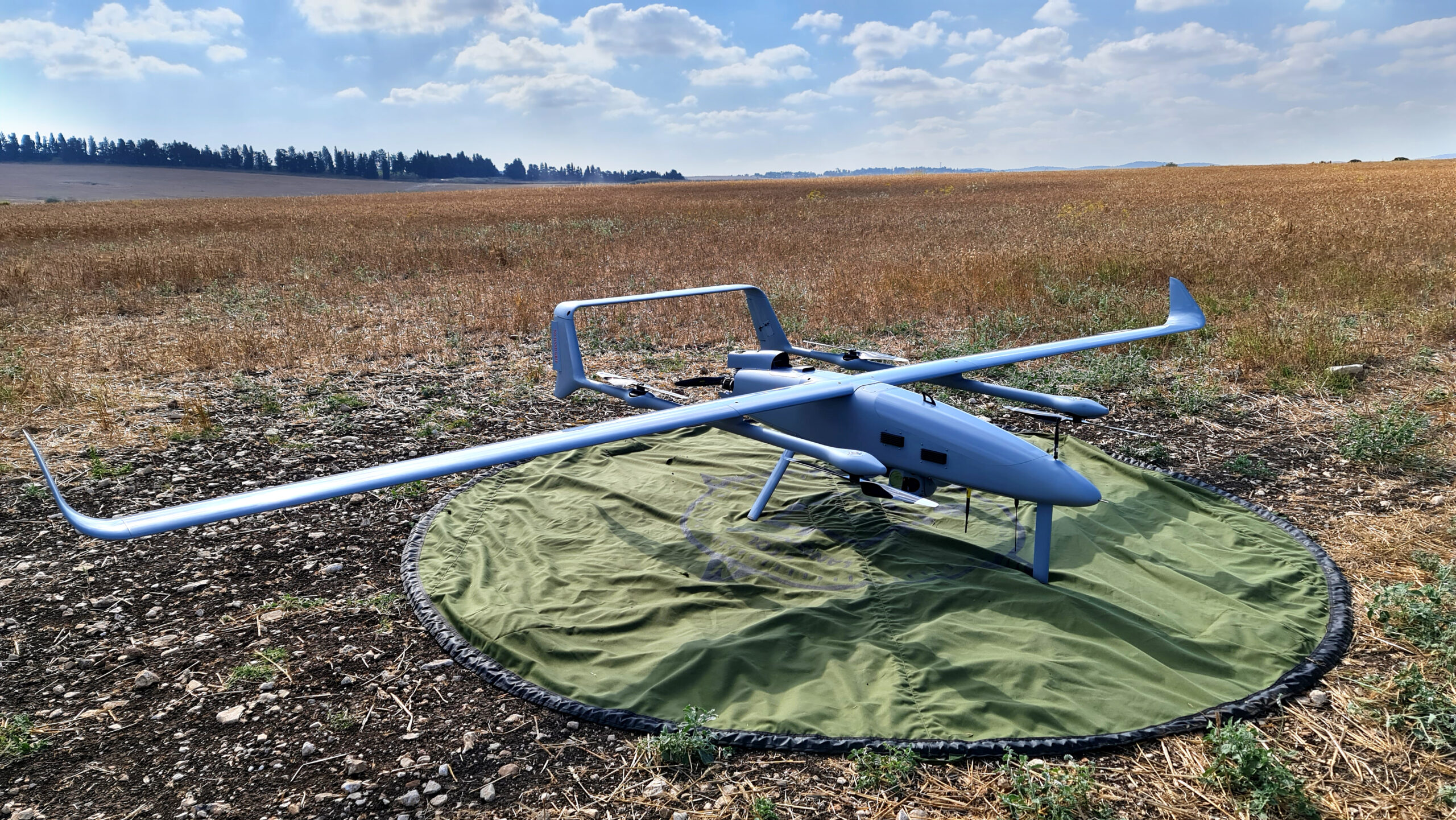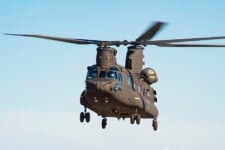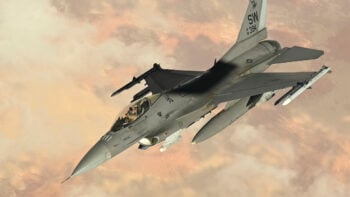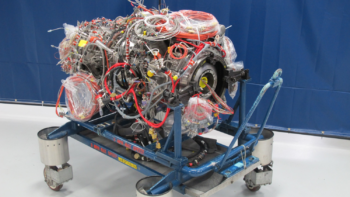
A BlueBird Aero Systems Thunder B VTOL system sits in a field, awaiting flight. (IAI)
TEL AVIV — For Israel Aerospace Industries, the change was slow coming, but once a decision was made, things started moving ahead very quickly. As little as two years ago, the company had shown little interest and seen less profit in smaller, multi-rotor drones.
But now the firm, whose best known UAVs are the much larger Heron-1 and Heron-TP, is in the middle of a dramatic shift, hoping to become a leading power in the market for the relatively small unmanned aerial vehicles, or “tactical” drones.
“The armed forces understood [something] — even medium-sized UAVs that have been operated by ground units have a big logistical signature, which is bad in a fighting zone,” Moshe Levy, executive vice president and general manager of IAI’s Military Aircraft Group, told Breaking Defense in an extensive interview earlier this month. “The small VTOL [vertical take-off and landing] UAVs eliminate this problem and give the fighters the much-needed flexibility.”
The Israeli Defense Forces had shown interest in smaller, tactical UAVs going back more than a decade, and years ago ago purchased the Skylark platform from Elbit Systems. In the past IAI officials told Breaking Defense they didn’t think it was an attractive market for the company. But a change of heart was evident in 2020 when IAI purchased half of the Israeli company BlueBird Aero Systems, which specializes in VTOL UAVs. Israel’s warming relations with regional neighbors also came into play; in September 2022 Morocco bought 150 of the Blue Bird systems.
RELATED: To counter drones, US Army seeks layers rather than ‘silver bullets’
Since IAI’s investment in BlueBird, the larger firm has integrated its expertise with its partner, Levy said, in attempts to come up with bolder designs.
“Now we focus on answering the growing demand for bigger VTOL systems with longer endurance,” he said.
That effort is based around BlueBird’s Thunder B VTOL system, which currently has a maximum takeoff weight of 35 kilograms and an endurance of 12 hours. But Levy said IAI and BlueBird want a version that can take off and fly with 100 kilograms — a goal that might require a combination of battery and gasoline power. Levy said the company is looking even further and hopes to present a VTOL with a max takeoff weight of 150 kilograms.
Levy said that another design being evaluated now is aimed at the fast launch of a number of VTOLs almost simultaneously. That design, Levy said, “will be based on a vehicle like a Hummer combat vehicle that will be able to carry a number of VTOL systems and launch them one after the other in intervals of no more than a few seconds.”
Such a capability would be useful for militaries interested in drone “swarms.”
RELATED: Israel asks industry to develop new long-range, stealthy armed drones
Beyond tactical ISR, Levy suggested innovative UAV systems could help the IDF in transferring ammunition, medical supplies and food to infantry units on the front — when a manned mission might be too dangerous. (The US Army is keen on that general idea, having outfitted Black Hawk helicopters to carry out missions without pilots.)
In past years some designs have been evaluated by some Israeli companies including a motorized “flying wing” based on a chute carrying the supplies, but this idea has not reached the point where the IDF was convinced that it’s the right solution. Still, Levy revealed that IAI is now working on a design based on a glider that will be carried by a C-130 aircraft and will be simply thrown out the back door of the aircraft, and then glide to the pre-programmed landing point where the soldiers can collect the needed supplies. Levy said that the glider will be expandable and will be able to carry a load of up to 700 kilograms (approximately 1,500 pounds).
As mentioned, when it comes to tactical UAVs, IAI isn’t the only Israeli firm in the race. Elbit Systems in 2019 purchased the company Flying Production, which also makes multi-rotor UAVs. (The previously mentioned Skylark system is a small, man-launched propeller drone.)
The two major Israeli UAV manufacturers have clearly understood that tactical UAVs are now in top demand and are racing to adapt themselves to the new market. It’s safe to say that the fast growing demand for tactical UAVs will result in some very unique systems coming out of Israel in the near future.
Sullivan: Defense industry ‘still underestimating’ global need for munitions
National Security Advisor Jake Sullivan said that there are “no plans” for another Ukraine supplemental at this point.


























